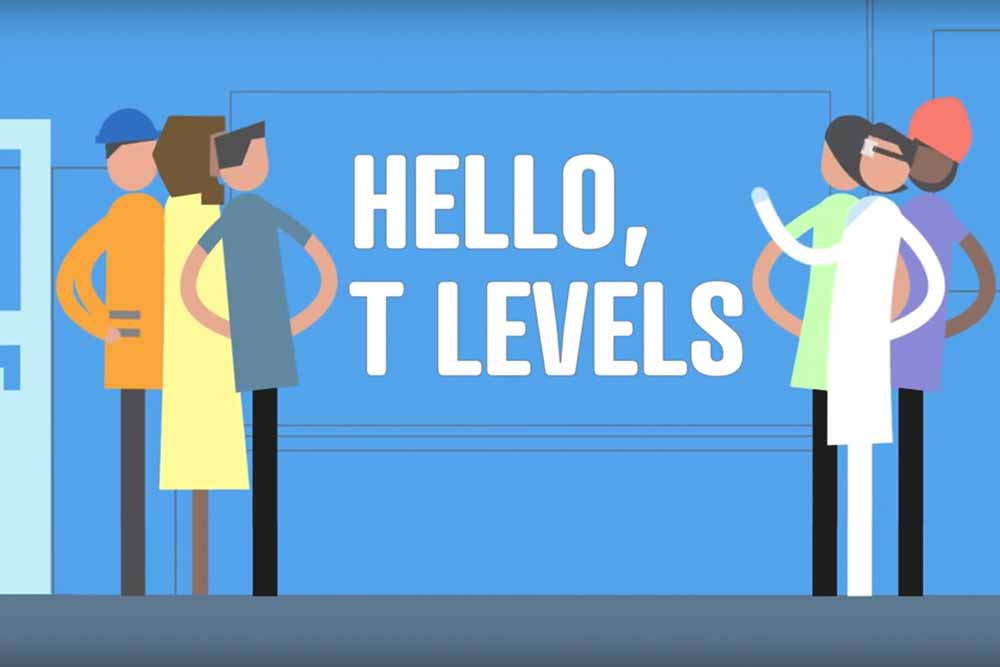T Levels: t-minus 12 months
- Published on
- 6th September 2019
- Written by
- Probash Chowdhury, Toxicologist at GlaxoSmithKline
- Filed under
- Apprenticeships
I write this article in September 2019, approximately 12 months before the first three T Levels will start teaching in England:
- Digital production, design and development (digital industry)
- Design, surveying and planning (construction industry)
- Education (education and childcare industry)
September 2019 is also approximately 24 months before the T Level I worked on (Healthcare Science) starts to teach in England (September 2021). So, what is going on with getting T Levels, Further Education providers and employers ready?
As a reminder, a summary of what T Levels are can be found on the Department for Education (DfE) website, or see my previous articles on LinkedIn.
The further education (FE) providers who are planning to deliver the 2020 and 2021 T Levels have been announced. The teachers haven’t been left to find out for themselves how to teach the contents of the T Levels, the Education and Training Foundation (instructed by the DfE) have been busy putting together the T Level Professional Development offer (TLPD) which I am helping to review. It is still developing and evolving, but there is much content already available. The flexible offer is being shaped around the needs of providers and their workforce alongside relevant regional, employer and curriculum needs. The TLPD offer currently takes the form of training modules (online and face to face), networking sessions and workshops to help FE providers understand what T Levels are in greater depth, what the contents are, how to identify and develop skills and knowledge (where applicable) to be able to teach T Levels, prepare operational readiness and opportunities to spend time with an employer to learn first-hand about the occupations within the scope of T Levels. If you are or work in an FE provider that will be delivering the 2020 or 2021 T Levels, I encourage you to take advantage of the TLPD and keep an eye out on the event calendar for activities all around England. Training has been available since May 2019.
Unfortunately, widespread awareness of what T Levels are is still lacking, as reported by Sky News on 3rd September 2019. The DfE and the Institute for Apprenticeships and Technical Education should be addressing this in the next month or so with some promotional campaigns.
The grading and certification of T Levels have been announced. Students who complete their T Level will receive an overall grade of pass, merit, distinction or distinction*. They will get a nationally recognised certificate which will show their overall grade and a breakdown of what they have achieved.
T Level graduates who wish to go on to higher education at university can now see how their grade translates into UCAS points:
This comparison table is also useful for students, parents, employers, further education providers and universities to understand how the T Level grade compares to traditional A Levels, thereby showing their equivalent worth.
There has been further clarification of the practicalities of industry placements. Every T Level will include an industry placement with an employer focused on developing the practical and technical skills required for the occupation. These will last a minimum of 315 hours (approximately 45 days) but can last longer. Employers can offer industry placements as a block, day release or a mix of these, and can discuss sharing part of the placement with another employer if necessary.
FE providers will support employers offering industry placements. This will include assistance with the necessary paperwork, a careful planning process and support with designing the industry placement.
The Education and Skills Funding Agency (ESFA) and National Apprenticeship Service (part of ESFA) will work with employers and providers on industry placements. Employers interested in finding out more about industry placements can contact 08000 150 600 or email tlevel.placement@education.gov.uk.
